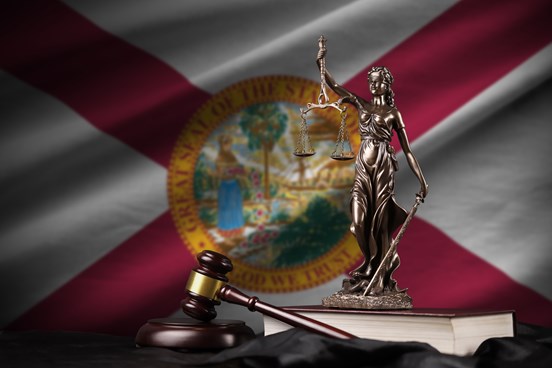“In for a Penny, in for a Pound” is No Longer the Case for Florida Lawyers
Client Alert

On April 1, 2024, newly adopted Rule 1.041 to the Florida Rules of Civil Procedures goes into effect, which creates a procedure for an attorney to appear in a limited manner in civil proceedings. Currently, when a Florida attorney appears in a civil proceeding, he or she is responsible for handling all aspects of the case for their client. This new rule authorizes an attorney to file a notice limiting the attorney’s appearance to particular proceedings or specified matters prior to any appearance before the court. For example, an attorney can now appear for the limited purpose of filing and arguing a motion to dismiss. Once the motion to dismiss is heard by the court, the attorney may file a notice of termination of limited appearance and will have no further obligations in the case.
The intended consequence of Rule 1.041 was to make accessing the Florida court system easier for litigants. Many individuals who could not afford to retain an attorney throughout an entire case can now pick and choose when they believe an attorney’s help will be the most beneficial. For example, a defendant in a debt collection lawsuit may choose to hire an attorney to attend mediation or handling the trial. Rather than the attorney devoting months to the case, the client hires the attorney for only a few days’ worth of work.
A potential unintended consequence of Rule 1.041 is an increase is compartmentalization or specialization among of attorneys. The increase of specialization may be both a benefit and detriment to litigants. For instance, a number of Florida attorneys may start promoting their ability to defend any client at trial even upon short notice. An attorney such as this would rely on their knowledge of Florida Evidence Code to try to exclude evidence the plaintiff would need to prove their case. To the litigant faced with the proposition of having no attorney at their trial, or an attorney who has only a limited knowledge of their case, having an attorney who was only partially prepared would feel like a blessing.
While some litigants will benefit from the new limited appearance rule, litigants will need to be careful in who they choose to hire for even a limited role. Going back to the example of a defendant in a debt collection lawsuit that hires an attorney to file a motion to dismiss, the litigant will assume that the limited appearance attorney will file a motion to dismiss tailored to their specific case; however, this most likely will not be what actually happens. It will be far more likely that attorneys will use form motions that only require changing the name of the defendant in a few key places. The attorney may have filed the same form motion in hundreds of cases with mixed success. Unfortunately, the current litigant will not know this without asking detailed questions of the limited appearance attorney before engaging them.
For more information or questions regarding the newly adopted Florida Rule 1.041, please contact BMD Litigation Attorney Ed Brown at ejbrown@bmdpl.com or (904) 366-1516.